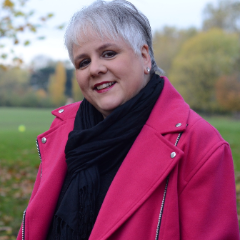What is sight singing and why is it important?
Sight singing, also known as vocal sight-reading, is the ability to read and sing music at first sight. This skill is crucial for musicians as it enhances their ability to interpret and perform music accurately. By mastering sight singing, musicians can improve their pitch accuracy and rhythmical skills, which are essential for any musical performance. Sight singing involves not only reading the notes but also understanding the rhythm and dynamics of the piece, allowing musicians to convey the intended emotion and style of the music. This skill also complements ear training, as musicians develop their âinner hearingââthe ability to mentally hear the notes before singing them. This capability can significantly boost a musicianâs confidence and expand their musical opportunities, enabling them to adapt quickly to new pieces and collaborate effectively with other musicians.
How can someone learn to sight-sing effectively?
Learning to sight-sing effectively requires dedication and a structured approach. One of the foundational steps is to learn the solfege system, which involves using syllables like Do, Re, Mi to represent the notes. This system helps musicians internalise the relationships between pitches. Regular practice is key, as is familiarising oneself with musical notation. Beginners often start by identifying the tonic note in simple melodies and gradually progress to more complex pieces. Additionally, practising rhythm by clapping or tapping along to music can help improve timing and coordination. It is beneficial to regularly sight-sing unfamiliar sheet music and compare oneâs performance to recordings to identify areas for improvement. Online resources, such as TutorExtra, provide access to experienced tutors who can offer personalised guidance and feedback to accelerate learning.
What are the benefits of taking online sight singing lessons?
Online sight singing lessons offer numerous advantages, particularly in terms of accessibility and convenience. With platforms like TutorExtra, students can connect with expert sight singing teachers from anywhere in the world, eliminating geographical barriers. This flexibility allows students to schedule lessons at their convenience, accommodating busy lifestyles. Online lessons often provide access to a wider range of teaching styles and methods, enabling students to find a tutor who best matches their learning preferences. Furthermore, online lessons can be recorded, allowing students to review sessions and reinforce their learning. These lessons also often include interactive tools and resources, such as virtual sheet music and ear training exercises, which enhance the learning experience. The initial lesson is frequently offered free of charge, providing an opportunity to explore the course content and teaching style before committing.
What are some local resources in London for learning sight singing?
London, being a vibrant cultural hub, offers numerous resources for those interested in learning sight singing. Institutions like the Royal Academy of Music provide world-class music education and often have workshops and courses focused on sight singing and ear training. Additionally, community choirs and singing groups across London frequently offer sessions that focus on improving sight singing skills in a group setting, providing both practice and social interaction. The city also hosts various music festivals and events where performers can experience sight singing in a live context, further enhancing their skills. Libraries in London, such as the British Library, hold extensive collections of music scores, providing a wealth of material for practising sight singing. For those seeking professional guidance, numerous private music schools and tutors offer lessons tailored to individual needs.
How does Caroline Lenton-Ward contribute to the sight singing community in London?
Caroline Lenton-Ward is a prominent figure in the London sight singing community, having trained at the prestigious Royal Academy of Music and performed with renowned ensembles such as the BBC Singers and Opera North. Her extensive experience includes solo performances at major venues like the Royal Festival Hall and the Royal Albert Hall. Beyond her performance career, Caroline has significantly contributed to music education in London. She has served as a vocal tutor at Goldsmiths, University of London, and directed choirs at institutions such as Sydenham High School. Caroline's commitment to choral education is evident through her involvement with the Westminster Choral Project and other outreach activities. Her expertise benefits both aspiring singers and established choirs, fostering a greater appreciation and proficiency in sight singing across the city.
What cultural landmarks in London enhance the experience of learning music and sight singing?
London is home to a multitude of cultural landmarks that enrich the experience of learning music and sight singing. The Royal Festival Hall, located on the South Bank, hosts a diverse range of concerts and musical performances, providing inspiration and insight for aspiring musicians. Similarly, the Barbican Centre offers a wide variety of music events, including classical and contemporary performances that showcase the skills involved in sight singing. The city is also home to numerous prestigious music academies, such as the Royal College of Music, which regularly open their doors for public masterclasses and workshops. Museums like the Victoria and Albert Museum often feature exhibits on musical history and instruments, offering a broader understanding of the cultural context of music. These landmarks not only provide learning opportunities but also immerse students in the rich musical heritage of London, enhancing their educational journey.







